Butt Lift in Tunisia
Search and Compare the Best Clinics and Doctors at the Lowest Prices for Butt Lift in Tunisia
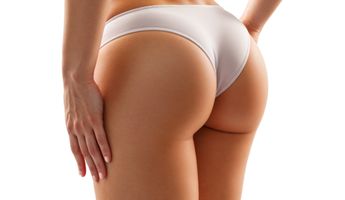
Find the best clinics for Butt Lift in Tunisia
With Medijump you can browse 4 facilities offering Butt Lift procedures in Tunisia. The cheapest price available is $1,578 in Tunis. And for the cheapest price globally, prices start from $600 in Egypt.
Butt Lift in Tunis
Price: $ 1,578
Butt Lift in Mahdia
Price: $ 1,920
Egypt offers the best prices Worldwide
Price: $ 600
From 37 verified reviews
Saoussen Saidani, 13 June 2020
My 12 year old daughter Lina has had surgery Pancreas tumorHeavy Operation which went very wellI thank all the staff of the Pasteur clinic for their hospitality and their hygiene ...I thank the doctors who attended the operation and in particular the surgeonAYADI Sofiene who accompanied us from the start for his professionalism as well as DR Walid Miraoui. The discovery of this tumor is done in a very short time a week to manage allThe support of Surgeon Ayadi Sofiene was really perfect as a parent we were reassured and above all in confidence.And especially I thank them for the moral support of My Daughter Lina who kept the smile until the end and who It is found in Total confidenceThank you so much for saving our childMr er Mrs Saidani
From 9 verified reviews
Ibtyhel Ben bassine, 19 April 2019
I slept my little girl on Thursday, March 8, 2018, was at Top, my gygy, the nurses .... they put me in a calm and clean environment with a service of excellence .. thank you prts and especially pr Dr. hichem
Clinic Apollon, can be found in Boulevard Mohamed Bouazizi, Tunis, Tunisia and offers its patients Butt Lift procedures as well as 90 other procedures, across 1 different procedure categories. At present, there is no pricing information for Butt Lift procedures at Clinic Apollon. The pricing information is quite specialised, so it's only available on request, and the average price is around $1,846. A small team of medical professionals undertake all procedures at the Clinic, with 2 in total, and Clinic Apollon is not accredited by any recognised accreditations institutions.
Aesthetica Tour, can be found in Boulevard Mohamed Bouazizi, Tunis, Tunisia and offers its patients Butt Lift procedures as well as 42 other procedures, across 9 different procedure categories. At present, there is no pricing information for Butt Lift procedures at Aesthetica Tour. The pricing information is quite specialised, so it's only available on request, and the average price is around $1,846. The lead specialist at the Hospital will be carrying out all the treatments, and Aesthetica Tour is not accredited by any recognised accreditations institutions.
- Home
- Tunisia
Compare Before & After Photos of _procedure_photos.phpButt Lift
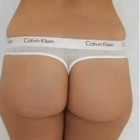
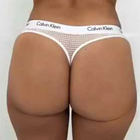
Front view
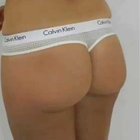
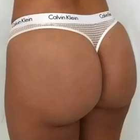
Half-side view
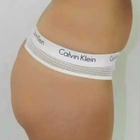
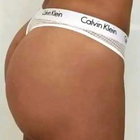
Full-side view
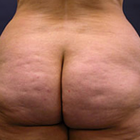
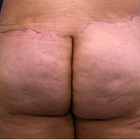
Front view
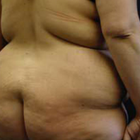
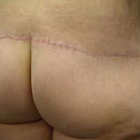
Front view
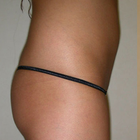
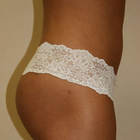
Half-side view
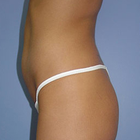
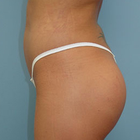
Half-side view
WHY US?
At Medijump, we're making medical easy. You can search, compare, discuss, and book your medical all in one place. We open the door to the best medical providers worldwide, saving you time and energy along the way, and it's all for FREE, no hidden fees, and no price markups guaranteed. So what are you waiting for?

Free

Best Price

Widest Selection

Risk-Free
What you need to know about Butt Lift in Tunisia
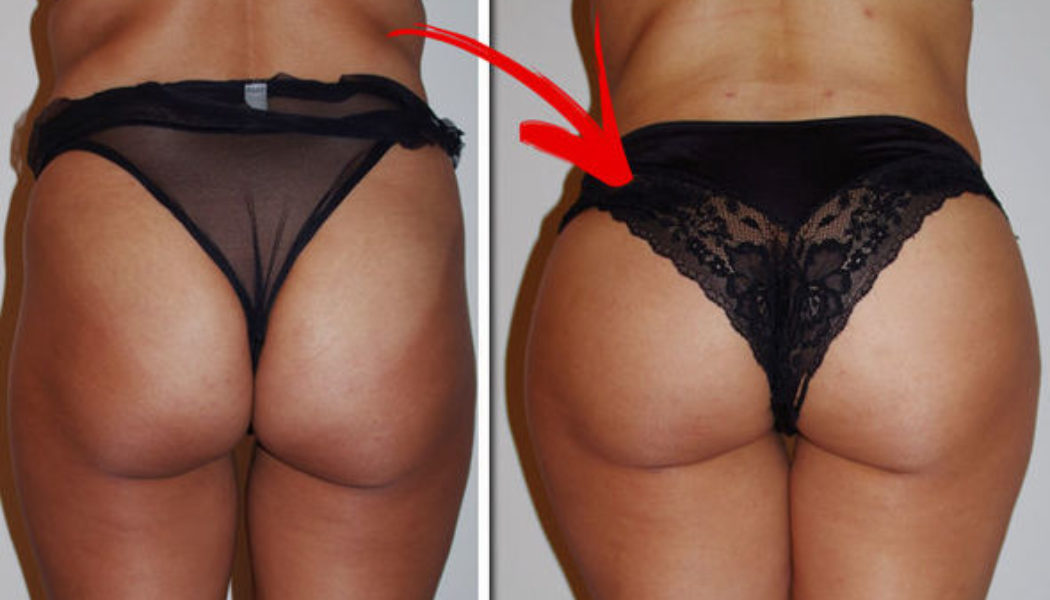
Before you undergo butt lift surgery, you may have loose, saggy, and droopy buttocks making you look and feel older than your age. With butt lift surgery, you can get more rounded and toned buttocks since it reshapes your body contour, making you look younger than your age.
The Butt lift is a surgical procedure to remove unwanted fat or loose skin from the buttocks in order to help reshape them. Implants and Liposuction are often involved and incisions using a cannula can be applied to the crease of the buttocks so there is no visibility of scarring. Butt Lifts are common among those who have lost lots of weight and consequently, the shape of their buttocks has changed. It may be performed as part of a Tummy Tuck (belt lipectomy) or lower body lift to contour the buttocks, groin, thighs, and abdomen. (Another option is to have a Brazilian Butt Lift).
A buttock lift alone won't add any volume to the buttocks. But sometimes, a buttock lift is combined with an augmentation procedure to alter the shape or size of the buttocks with implants or fat grafts. By removing excess skin and fat from your buttocks, a buttock lift can give you a more toned appearance.
What is the cost of Butt Lift in Tunisia?
When estimating the price of a Butt Lift in Tunisia, it's vital to acknowledge that the outlay incorporates numerous diverse elements. Initially, the competencies and reputation of the surgeon executing the process have a significant impact on the determination of the cost. Surgeons who are highly skilled and have an excellent reputation often demand higher fees for their proficiency. The surgeon's expertise directly influences the procedure's success and safety, making it a substantial part of the overall expense.
Besides the fee of the surgeon, the expenditure of the medical facility, costs of anesthesia, and clinical tests contribute significantly to the overall expense. These costs can fluctuate dramatically based on the procedure's intricacy and the location where the operation is taking place. Also worthy of consideration is the expense associated with preoperative lab work, post-operative care, and any necessary medication or medical supplies needed during the recovery phase.
What does a Butt Lift Procedure Involve?
Butt lift is most often carried out under general anesthesia. An incision is applied along your lower back from one butt to the other. The excessive skin and adipose tissue are removed through this incision lifting your butts up. The rest of the fat is redistributed and the skin is tightened. Incisions are stitched and surgical tapes are used to provide additional support. Bandages are applied to the wound. Drainage tubes are inserted to remove excess fluid and blood.
Should you get a Butt Lift?
Butt lifts work by removing excess skin and adipose tissue from the site and repositioning the leftover skin and adipocytes. Redistribution of fat and skin changes the contour of your buttocks, making them no longer appear saggy and droopy. Also, it should not be confused with Brazilian Butt Lift which is an entirely different procedure.
Not everyone is a good candidate for butt lift surgery. Discuss your medical history with MyMediTravel, any prescription drugs you are taking, the desired results you hope for, the pros and cons of the surgery, cost, recovery time, risks, success rate or any other query which comes in your mind regarding this procedure.
You might consider a buttock lift if you:
- Have lost a significant amount of weight and your weight has been stable for at least 6 to 12 months.
- are overweight and haven't been able to lose a significant amount of weight through physical activity and changes in your diet.
- Have a normal weight, but want a dramatic improvement in the appearance of your lower body.
- Have a normal weight, but your skin won't contract after liposuction due to poor elasticity related to aging.
How Long Should I Stay in Tunisia for a Butt Lift Procedure?
Butt lift is a 2-5 hours long surgery and will require at least 1-2 nights stay in the hospital, although in some cases you can be discharged on the same day. Even after being discharged, you have to stay in Tunisia for at least 10-14 days for follow-ups. During this period, your health is strictly monitored, you are given medicines to help you with pain and to prevent infections. Stitches are removed after 7-10 days. If everything is fine during this time, you are free to travel home.
What's the Recovery Time for Butt Lift Procedures in Tunisia?
In total, 4-6 weeks of recovery time is required before getting back to your normal routine, so avoid excessive and unnecessary activities during this period. There will be bruising and swelling around the operated area which subsides gradually after a few days. You can start office work 10 days after post-op if your job does not require long periods of sitting time - if it does, just be sure to move around as much as possible.
The recovery time can vary according to your health, environment, and daily routine. You can start driving after 4-6 weeks but do not travel long distances as it will require you to sit for too long. Scars take much longer to fade away. In 4-6 months, you should expect to have fully recovered.
What sort of Aftercare is Required for Butt Lift Procedures in Tunisia?
The following are some points which should be considered for your aftercare:
- Quit smoking and drinking because tobacco and alcohol slow down blood circulation hence slowing down your recovery.
- Avoid sitting for long periods for at least a week after the procedure.
- Avoid such positions which can put a strain on your scars. It can re-open your wound.
- Change your dressing regularly to avoid infection.
- Take prescribed pain killers and antibiotics to relieve pain and prevent infection.
- Wear some supporting garments for the early few weeks.
- Use scar cream to massage your scars. It will speed up their fading.
- Do not lift children and heavy objects.
- Avoid climbing up the stairs.
- Avoid exercise, gym, swimming, and other strenuous activities for several weeks.
- Abstain from sexual activity until allowed by your doctor.
- Start taking small steps the next day after going through the surgery to prevent blood clot formation.
What's the Success Rate of Butt Lift Procedures in Tunisia?
Butt lift is a highly successful and long-lasting procedure. An ideal weight should be maintained to keep the results of your surgery consistent. It is found to be far more successful than the Brazilian butt lift surgery, which has lead to patient deaths - unlike the Butt Lift surgery, which has not recorded any fatalities. The vast majority of patients are extremely happy with not only the results of the procedure but with the entire process leading up to and following the surgery.
Are there Alternatives to Butt Lift Procedures in Tunisia?
The operation should never be the foremost option and consider all other options first. Following are some non-surgical alternatives to butt lift surgery:
- Fillers: these are getting a lot of fame these days. Fillers such as Restylane, Sculptra, etc. are injected into your buttocks, making them look plump and lifted without surgery. They induce collagen production in your buttocks. Sculptra is found to be most effective for this purpose. It is advantageous as it has no downtime.
- Hydrogel buttock shots: hydrogel injections give your butt a rounded contour along with a lift. But they are not usually recommended.
- Liposuction: in this method, adipocytes are removed from your butts through injections to give them a more toned appearance. This fat can be injected at other places of your body if required.
- Exercise: some exercises, such as squats will help to change the shape of your butts, tighten them, and lift them up without surgery.
What Should You Expect Before and After the Procedure
Prior to the Butt Lift at Tunisia, be prepared for a comprehensive consultation phase. The medical expert will compile an exhaustive medical history, carry out a physical check-up, and converse about your aspirations and anticipations related to the procedure. Transparency regarding your health status and expectations during these consultations is of utmost importance. Some lab tests and medical imaging may also be necessary to examine your general health and determine your eligibility for the procedure. Subject to your health conditions and personal circumstances, guidelines for the pre-procedure phase will be communicated to you. This might involve guidelines regarding food intake, hydration, adjustments in medications, and consumption of substances like tobacco and alcohol.
Another critical element before the procedure is mental readiness. Naturally, feelings of worry or apprehension may arise before the procedure. Engaging in open and candid discussions with your medical expert regarding your apprehensions and expectations can help mitigate such feelings. Instructions about the logistics on the day of the procedure, such as the time to report at the clinic, appropriate attire, and arrangements for travel, will also be shared with you.
Upon completion of the Butt Lift, your condition will be closely observed in a post-operative area until the effects of anesthesia subside. Feeling some discomfort, experiencing swelling, and noticing bruising after the procedure is quite normal. Medications for managing pain and reducing swelling, as well as preventing infection, will be administered. Essential post-procedure care guidelines will be provided to you, which should be strictly adhered to ensure a seamless recovery process. These guidelines usually include instructions for wound care, medication routines, restrictions on activities, and what symptoms of complications to be vigilant about.
What are Potential Risks of Butt Lift?
Just like any operative process, Butt Lift also has inherent risks involved. The degree of potential risks can drastically differ from person to person based on their health conditions, techniques employed during the procedure, and the expertise of the surgeon. Usual risks linked to this procedure encompass adverse reactions to anesthesia, bleeding, infections, and variations in skin feeling. It is crucial to understand that the occurrence of such risks is generally low, and a majority can be lessened by adhering to the post-operative guidelines given by the healthcare professional. For instance, prevention of infection can be achieved through maintaining suitable post-operative wound hygiene, whereas the adverse effects of anesthesia can be minimized through a detailed discussion of your past medical records with your healthcare professional ahead of the surgery.
Although less usual, more critical complications can include a situation such as a fat embolism, which is the blockage of a blood vessel due to a piece of fat breaking away, affecting cardiac activity or leading to a pulmonary embolism. Asymmetry could also occur, where one buttock varies in size or form than the other. However, this is typically associated with the technique used and pre-existing body conditions rather than a specific risk associated with the procedure. If dissatisfaction arises with the aesthetic result, another surgical intervention might be necessary.
Whilst the information presented here has been accurately sourced and verified by a medical professional for its accuracy, it is still advised to consult with your doctor before pursuing a medical treatment at one of the listed medical providers
No Time?
Tell us what you're looking for and we'll reachout to the top clinics all at once
Enquire Now

Popular Procedures in Tunisia
Prices Start From $113

Prices Start From $208

Prices Start From $931

Prices Start From $76

Recommended Medical Centers in Tunisia for Butt Lift

- Interpreter services
- Translation service
- Religious facilities
- Medical records transfer
- Medical travel insurance
- Health insurance coordination
- TV in the room
- Safe in the room
- Phone in the room
- Private rooms for patients available

- Interpreter services
- Translation service
- Religious facilities
- Medical records transfer
- Medical travel insurance
- Health insurance coordination
- TV in the room
- Safe in the room
- Phone in the room
- Private rooms for patients available

- Interpreter services
- Translation service
- Religious facilities
- Medical records transfer
- Medical travel insurance
- Health insurance coordination
- TV in the room
- Safe in the room
- Phone in the room
- Private rooms for patients available

- Interpreter services
- Translation service
- Religious facilities
- Medical records transfer
- Medical travel insurance
- Health insurance coordination
- TV in the room
- Safe in the room
- Phone in the room
- Private rooms for patients available

- Interpreter services
- Translation service
- Religious facilities
- Medical records transfer
- Medical travel insurance
- Health insurance coordination
- TV in the room
- Safe in the room
- Phone in the room
- Private rooms for patients available

- Interpreter services
- Translation service
- Religious facilities
- Medical records transfer
- Medical travel insurance
- Health insurance coordination
- TV in the room
- Safe in the room
- Phone in the room
- Private rooms for patients available

- Interpreter services
- Translation service
- Religious facilities
- Medical records transfer
- Medical travel insurance
- Health insurance coordination
- TV in the room
- Safe in the room
- Phone in the room
- Private rooms for patients available

- Interpreter services
- Translation service
- Religious facilities
- Medical records transfer
- Medical travel insurance
- Health insurance coordination
- TV in the room
- Safe in the room
- Phone in the room
- Private rooms for patients available

- Interpreter services
- Translation service
- Religious facilities
- Medical records transfer
- Medical travel insurance
- Health insurance coordination
- TV in the room
- Safe in the room
- Phone in the room
- Private rooms for patients available

- Interpreter services
- Translation service
- Religious facilities
- Medical records transfer
- Medical travel insurance
- Health insurance coordination
- TV in the room
- Safe in the room
- Phone in the room
- Private rooms for patients available
Butt Lift in and around Tunisia
About Tunisia
Tunisia is one of the few countries which can cater to everyone and it manages to combine climate, golden beaches, history, and shopping for an “all-around” experience. It has a high standard of healthcare and an excellent reputation for cosmetic surgery. Cosmetic and plastic surgeons are regulated by the Tunisian Ministry of Health and the private clinics have state-of-the-art equipment and English-speaking staff. Tunisia welcomes an ever-increasing number of medical tourists each year, many of whom travel for Butt Lift procedures. Medical Tourists travel from all across the globe, particularly from Europe and neighboring African countries with an inferior healthcare system. Popular medical tourism destinations outside of the capital, Tunis, include Sousse and Mahdia
Popular Parts of Tunisia
- Tunis, the country’s capital, is overflowing with a history that dates from the 4th Century BC. The city is divided into two parts, the old city known as the medina and the new city (or Ville nouvelle in French). Many tourists visit Tunis to see the Archaeological Site of Carthage which is also a UNESCO World Heritage Site. The beautiful Islamic architecture in medina also attracts many tourists to the city.
- Tozeur is known as a home to an enchanting desert oasis, which was a place to rest and refuel for caravans crossing the Sahara. Another main attraction in the city is the medina, where tourists can find lines of beautiful brick-patterned traditional dessert houses. Chott el Djerid, Sahara’s largest salt pan, is a popular day-trip destination.
- Sousse is located on the coast of the Mediterranean Sea. It offers good beaches with a clear blue sea. The city has been fought over by the Romans, Arabs, and Europeans, giving it a colorful history and culture. Sousse Archeological Museum is one of the most visited sites in the country; it has the second largest collection of mosaics in the world.
- Hammamet is the country’s original tourism resort. The city has beautiful gardens filled with oranges, lemons, and other citrus plants. It also has wonderful sandy beaches with crystal clear water. Just like any other city in Tunisia, this city is also brimming with interesting histories. Sites such as The Gafsa Museum and Bardo Museum will give insights about the Islamic faith and culture.
- Douz, also known as “the gateway to the Sahara.” Tourists who want to experience the Sahara Desert come to this city. Take a camel trip or a 4-wheel-drive into the Sahara or see the Museum of the Sahara that has an interesting collection portraying traditional Saharan life.
Weather and Climate in Tunisia
The North of Tunisia has a subtropical Mediterranean climate with mild rainy winters and hot summers. The South and inland areas have a tropical desert climate.
The weather is relatively comfortable throughout the year. Summer starts in June and lasts until August. The average temperature is between 28 °C to 32 °C with July and August being the hottest months. The heat is not as bad on the coast because of the seaside breeze. Be aware that July to September is the jellyfish season.
The heat decreases in autumn and the weather is somewhat more comfortable. There are occasional rain showers in September. The temperature in October can be like summer during day time, but cold at night. October has more rain than September. The season lasts for three months from September to November with an average temperature of around 19 °C to 29 °C.
The weather in winter can be uncertain. The average temperature is between 16 °C and 18 °C, but it can drop to 7 °C at night and below 0 °C in highlands and deserts and a clear sky is rare during this season.
Spring comes in March and the temperature can rise to 20 °C. Mornings and nights are cold; there is still a high probability of rains and thunderstorms at the end of this season.
Getting Around in Tunisia
Tunisia has several international airports. The main airport is Tunic-Carthage International Airport. It has international connections with major European countries and the Middle East. The airport is the hub for Tunisair, Tunisair Express, and Nouvelair. Other airports that have international flights are Enfidha-Hammamet, Monastir Habib Bourguiba, Djerba-Zarzis, and Tabarka-Aïn Draham.
Taxis and buses are available to get to the city center from Tunis Airport. The SNT bus line departs every 30 minutes from the airport, the ticket costs less than 1 TND. There is also the TUT bus which departs every 15 minutes and is more luxurious and expensive.
Airport taxis are available at the airport taxi stand and are usually metered. Always make sure that the driver turns the meter on before riding the taxis. A journey to the city should cost around 5 TND. An extra cost will be added if you have baggage.
Getting around in Tunisia can be done by several transportation modes. Tunisair Express provides domestic flights between Tunis, Tozeur, Djerba, and Gabes. The Train is also available and the national train company in the country is SNCFT that runs modern and comfortable trains from Tunis to Sousse, Sfax, and Monastir. There are three classes of service that tourists can choose. The fare from Tunis to Sousse is between 6 to 10 TND. The long-distance bus is an economical option to travel between big cities such as Tunis, Hammamet, and Nabeul. The buses usually depart every 30 minutes.
Tourist Visas in Tunisia
Citizens of 97 countries (including Australia, China Singapore, the United States, and Russia) can visit and stay in Tunisia for up to 90 days without a visa. Other nationalities are advised to check with their local Tunisia embassy. Tunisia provides an online visa application for nationalities that needs a visa to enter. The eVisa will simplify the process of obtaining travel authorization to enter the country.
Additional Information
-
Local Currency: the local currency is the Tunisian dinar (TND). 1 USD converts to 2.61 TND.
-
Money & Payments: ATMs can be found in most cities and in all tourist areas. Many ATMs have withdrawal limits of 400 TND. Credit cards (MasterCard and Visa) are accepted in major cities and tourist areas. They can be used for shops, car hire, or top-end accommodation. Always make sure to carry cash if you want to travel outside major cities. Tipping is not necessary but will be appreciated.
-
Local Language: Arabic is the official language of Tunisia. French is very common due to the country’s former status as a French protectorate. English is still very limited except in the tourist areas and expensive hotels.
-
Local Culture and Religion: Islam is the major religion with 98% of the population identified as Muslim. There is a small group of Christian and Jews. Since most of the population is Muslim, always remember that the dress code is important in Tunisia.
-
Public Holidays: Tunisia celebrates major Islam holidays. The country hosts several annual festivals throughout the year such as The International Festival of the Sahara, Yasmine Hammamet Festival, and the International Festival of Carthage.
Popular Searches
- Plastic Surgery in Thailand
- Dental Implants in Thailand
- Hair Transplant in Thailand
- Breast Augmentation Thailand
- Gastric Sleeve in Thailand
- Gender Reassignment Surgery in Thailand
- Laser Hair Removal in Bangkok
- Botox in Bangkok
- Dermatology in Bangkok
- Breast Augmentation in Bangkok
- Coolsculpting in Bangkok
- Veneers in Turkey
- Hair Transplant in Turkey
- Rhinoplasty in Turkey
- Stem Cell Therapy in Mexico
- Rhinoplasty in Mexico
- Liposuction in Mexico
- Coolsculpting in Tijuana
- Rhinoplasty in Korea
- Scar Removal in Korea
- Gastric Sleeve in Turkey
- Bone Marrow Transplant in India
- Invisalign in Malaysia
- Plastic Surgery in the Dominican Republic
- Tummy Tuck in the Dominican Republic
- Plastic and Cosmetic Surgery in Poland
- Rhinoplasty in Poland
- Hair Implant in Poland
- Dental Implants in Poland
- IVF in Turkey



